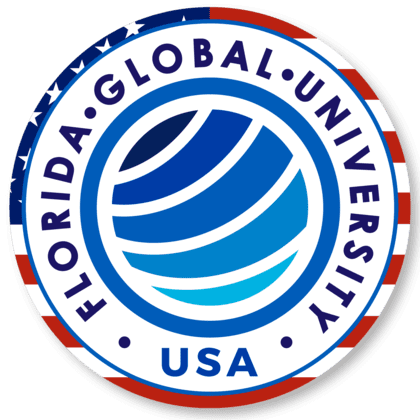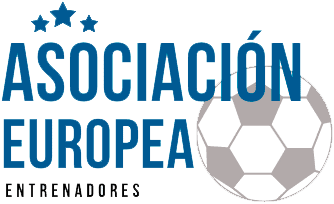You will have the opportunity to perform, voluntarily, your internships in different clubs in Barcelona.
Enroll
Course endorsed by:

In collaboration with:

Contenido
Presentación
With the Course of University Expert Quarry Management Florida Global University We will learn to use the fundamentals of Soccer from the base and we will evolve the theory and practice as we move up the categories.
The first categories must have a strong theoretical base to learn the sport and understand how to apply them to your game. In higher categories, all this theory is put into practice and technical exercises are carried out to apply them later in matches.
Goals:
- We will know how to manage young talent, and we will direct the quarries with the necessary efficiency for the growth of our club.
- We will become able to analyze the game to focus on the profiles necessary for the progression of our youth team.
- Technology will be a vital part of our model, in these times it is essential, and we will provide the necessary knowledge to the specialist for its use and exploitation.
- Group management will be vital to be able to evolve in our leadership figure and we will show you how to focus this discipline to be the most
productive as possible.
Virtual classroom: The courses are taught entirely online. They are carried out through our virtual campus which is accessed from the cover of our website, www.futbollab.com, through the Virtual Classroom Access button. From there you can access syllabi, explanatory presentations, demonstration videos, teacher analysis, and tasks that the teachers send and correct.
Tutors: The teachers offer continuous tutoring, establishing telephone and/or videoconference tutorials explaining any doubts that may arise. They guide your training evolution throughout the course, depending on your profile and level of dedication or study schedule. As we have indicated, the syllabus, videos, articles, interviews with experts... are part of your evolution in the course, so you will do periodic exercises that are corrected by the teacher to give you the clearest idea of the topic at hand. working.
This degree has the same validity outside of Spain as it does within Spain, since it is a curricular degree of studies, and protected by the Organic Law of Universities. No specific approval or accreditation is required, since Universities have the capacity to issue their own degrees, as stated in article 2.g) of the Organic Law of Universities 6/2001.
Programa
Module 1- METHODOLOGIES
1.1 Teachings that make the player understand the game.
1.2 Explanation of new teaching theories.
1.3 Complex models, seirulo model application.
Module 2- COGNITIVE STAGES OF THE PLAYER
2.1 Division of a player's training into stages.
2.2 Explanation of stages, explanation of differences between juvenile and juvenile training, etc.
Module 3- INTRODUCTION TO METHODOLOGICAL PRINCIPLES
3.1 Analytical method: drawbacks, advantages, characteristics.
3.2 Global method: drawbacks, advantages, characteristics.
3.3 Justification of new methodological trends at this time, explanations of previous trends.
3.4 Behaviorist and constructivist theories.
Module 4- TEACHING STYLE IN COLLECTIVE OR INDIVIDUAL SPORTS
4.1 Direct command: benefits.
4.2 Reciprocal teaching.
4.3 Guided discovery.
4.4 Troubleshooting.
4.5 Explanation of the benefits of teaching with the chosen teaching style.
4.6 Gesture information, verbal information.
4.7 Actions to be carried out by the coach.
4.8 Before the session: contents, content specification
4.9 During the session: organization, space distribution, time management, rhythm and distribution of the players.
4.10 After the session: evaluation, error analysis.
4.11 Task construction.
4.12 Explanation of why a type of task is based on the evolutionary age of the player.
Module 5- DIDACTIC FORMS OF TEACHING
UF22: Football game, corrective exercise and corrective game: explanation of how to build a ssp and at what stage it is necessary.
UF23: Explanation of the importance of perception and coordination within the player's training. Examples and exercises.
Module 6- SUCCESS
6.1 How to create a high level player?
6.2 Difference between teaching to win games and teaching to improve the player in the long term.
Module 7- HOW TO PLAN?
7.1 Content prioritization, sequencing, timing.
7.2 Planning criteria. Sports analysis. Example of planning a weekly or monthly microcycle taking into account the previous aspects.
Evaluación
At the end of the course you will carry out a final project that will encompass all the areas studied and that will always involve the development of a real case, since at FutbolLab we want our courses to be directed at all times to the real training situation that the technicians find themselves in. their teams.
Matriculación
To register you only have to do click In the Enroll tab, from there you will be asked to enter your personal data necessary for the academic record and in the final part of the process you will be able to choose the payment format for this program.
Remind you that in this course you can go at your own pace and do it according to your availability, as long as you do not exceed the maximum time to do it, which in the case of master's degrees is 2 and a half years, 18 months for Expert or Technical courses and 7 months for courses that are not in these categories.
It is plenty of time to do it, if you still need more time, you must ask the admissions department for authorization to extend a time. If you get a positive response, the new agreed time will be automatically extended.
Creditos
This Expert Course is issued by the Florida Global University and has 45 credits ects (1,125 hours lessons)
Information
Do you have any doubt? You can check our section frequent questions, download the Course program or fill out the following form and we will contact you.

